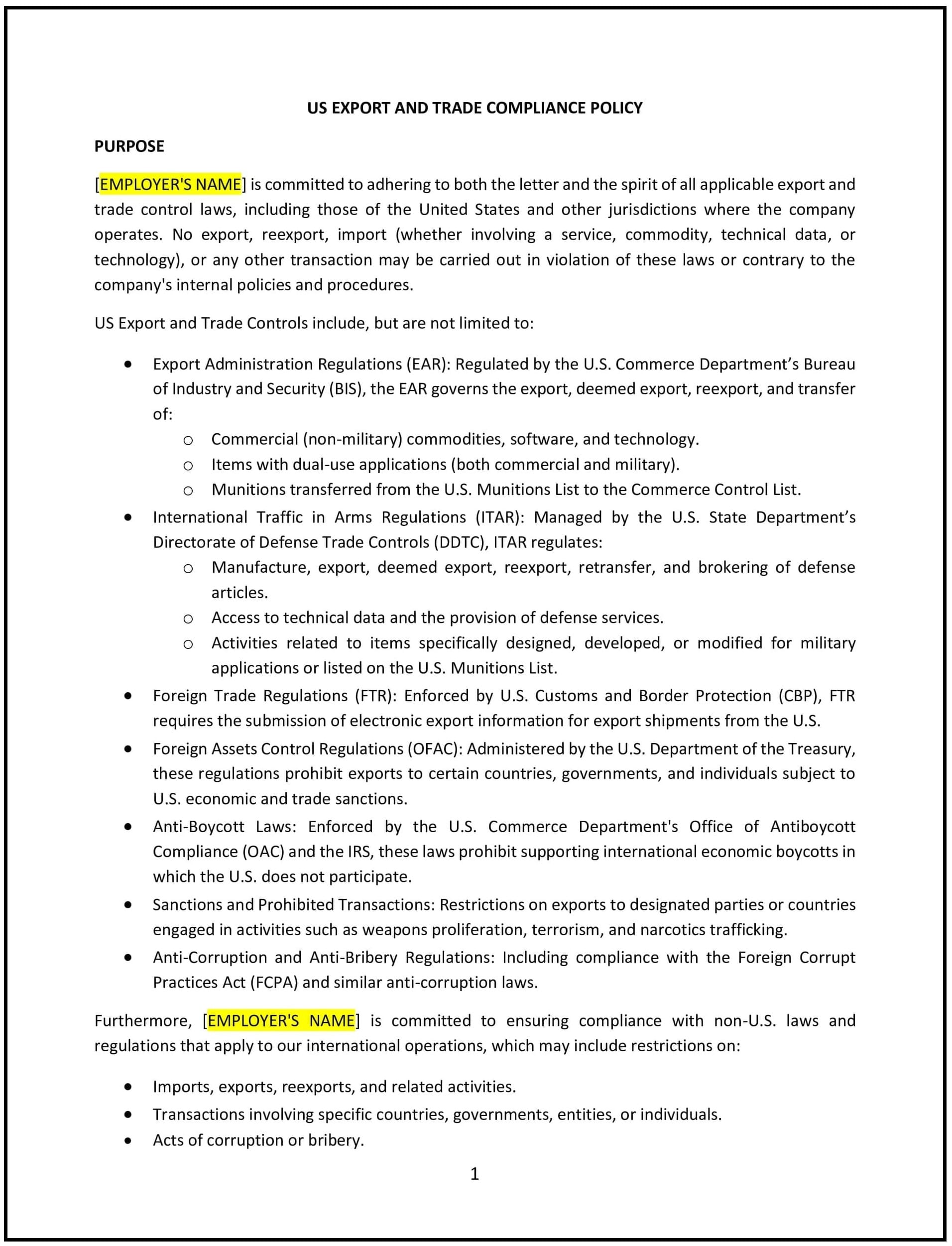US export and trade compliance policy (Oklahoma): Free template
Got contracts to review? While you're here for policies, let Cobrief make contract review effortless—start your free review now.

Customize this template for free
US export and trade compliance policy (Oklahoma)
This US export and trade compliance policy is designed to help Oklahoma businesses establish guidelines for complying with federal export laws, trade regulations, and sanctions. The policy outlines procedures for ensuring that goods, services, and technology exports align with applicable laws while minimizing legal and financial risks.
By implementing this policy, businesses can reduce compliance risks, protect intellectual property, and facilitate lawful international trade operations.
How to use this US export and trade compliance policy (Oklahoma)
- Define applicable laws and regulations: Outline key export control laws such as the Export Administration Regulations (EAR), International Traffic in Arms Regulations (ITAR), and Office of Foreign Assets Control (OFAC) sanctions.
- Establish licensing requirements: Identify when an export license is required and the process for obtaining approvals.
- Implement restricted party screening: Require verification of business partners, customers, and vendors against government watchlists.
- Set technology and data transfer controls: Prevent unauthorized sharing of sensitive information, software, or intellectual property.
- Address embargoed and sanctioned countries: Prohibit transactions involving restricted regions or entities.
- Maintain recordkeeping procedures: Require documentation of export activities, including invoices, contracts, and shipping details.
- Review regularly: Update the policy to reflect changes in federal trade regulations and Oklahoma business practices.
Benefits of using this US export and trade compliance policy (Oklahoma)
Implementing this policy provides several advantages for Oklahoma businesses:
- Reduces legal and financial risks: Helps businesses comply with federal trade laws and avoid penalties.
- Strengthens supply chain security: Ensures business transactions align with regulatory requirements.
- Protects intellectual property: Prevents unauthorized access to sensitive business information.
- Enhances global trade opportunities: Supports lawful expansion into international markets.
- Reflects Oklahoma-specific trade considerations: Addresses regional industries engaged in export activities.
Tips for using this US export and trade compliance policy (Oklahoma)
- Train employees on compliance requirements: Provide regular education on export laws and trade restrictions.
- Conduct periodic audits: Review export records and transactions for compliance gaps.
- Monitor regulatory changes: Stay updated on evolving federal trade laws and sanction lists.
- Establish escalation procedures: Define steps for reporting potential compliance violations.
- Adjust as needed: Update policies based on trade regulations and business operations.